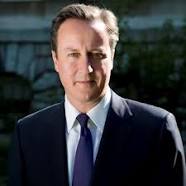
•Now that Britain has left EU, it remains to be seen how the old colonial power holds its own in a fiercely more contentious world
The decision of Great Britain to pull out of the European Union (EU) after months and years of dithering and threats came as a major surprise to analysts and scholars of international relations. It is seen essentially as a setback for the United Kingdom as its isolated economy is unlikely to march the great advances of Europe in a largely globalised world. The referendum that compelled the exit has already claimed its first casualty- Prime Minister David Cameron who has indicated his intention to resign.
It is indeed paradoxical that a country like Britain, a leading western power in the forefront of promoting global integration that has strengthened the north against the south could be caught in this web. It wants an integrated world, but a loose Europe. This is contrary to the position of the other great European countries like Germany, France and Italy.
It is unfortunate that Britain seeks relevance and privileges but is not ready for duties and responsibilities. The country seeks a parochial and isolationist outlook that would shut the doors against immigrants from weak and troubled European nations. This, to us, is a confirmation and resurgence of the selfish ideology that informed colonialism.
Now that Britain is on its own, it has to worry about the implications for internal arrangement. Already, Scotland that voted more than 60% to remain in Europe has indicated that it might have to re-examine its position within the United Kingdom. The Scottish people believe that remaining in Europe offers them some form of protection and one of their key leaders has indicated that they may have to seek another poll to determine their future. The idea of an independent Scotland may no longer seem as distant as it looked after the last poll. It will equally be interesting to see how the people of Northern Ireland, majority of whom voted to remain in Europe, would take the development. Could the Irish people in the North and South be encouraged to come together now? Wales is unlikely to beat the autonomy drum. All these have their implications for Britain’s political stability and, consequently, its economic well-being.
The measured response from the United States of America (USA) was to be expected. At the moment, the great powers in the current world economic order are USA, Europe, China and Japan. Britain’s exit from the EU further pushes it down from the pecking order, thus making it less useful to offer assistance and protection to its old weaker traditional allies in the developing countries. One of such allies is Nigeria that has always seen the old colonial master and leader of the Commonwealth of Nations as a natural leader. In the contest against francophone and Portuguese African countries, Nigeria had always felt safe with Britain within the European Union. From now, Nigeria’s diplomats have to devise new strategies of attracting support at the global stage. The feeble campaign for permanent membership of the United Nations Security Council is likely to further weaken now as the francophone countries are likely to group together behind one of their own. It is an indication that Nigeria must put its house in order if it is to be respected within the comity of nations.
We do not accept, as some have suggested, that the development could affect support for Nigeria’s war against terrorism. At the multilateral level, the world has come to accept that it is a case of injury against one being injury against all. With the murderous and unrelenting push by the Islamic states and Al-Shabab ideologues it is inconceivable that the world would watch Boko Haram slice up Nigeria. And at the bilateral level, Nigeria has signed agreements with world powers like USA, China and the EU. We believe these relationships subsist.
We hope that Britain will find the least disruptive way of sorting out its problem in the years ahead. However, the lesson for us is that Nigeria has all the potentials to stand on its own in the same way that countries like China and India have pushed themselves up the international, social, political and economic ladder.
NATION
END

Be the first to comment